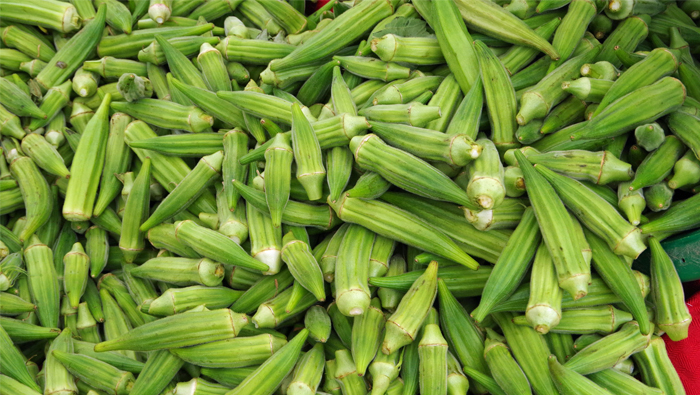
Muscat: A researcher from Sultan Qaboos University (SQU) has earned recognition for inventing a way to preserve a vegetable for a longer duration of time.
The vegetable in question is okra, also known as ladies finger. The okra grown in Oman are one of the most drought and heat-resistant species in the world. However, their shelf life is limited.
They are usually stored in flexible plastic film, which protects them from environmental conditions. However, the film does not have any anti-microbial properties.
Dr Laila Al Naamani, a researcher from the Department of Marine Science and Fisheries at SQU sought to fix the problem by inventing a novel nano-composite anti-microbial packaging.
This means that she created a special coating, using nano-technology to be applied on the plastic film to prolong the life of okra.
The research titled “Nano-composite Zinc Oxide-Chitosan Coatings on Polyethylene Films for Extending Storage Life of Okra (Abelmoschus esculentus)” was recently published in a peer review high impact factor Nano-materials journal.
Al Naamani’s work was supervised by Dr Sergey Dobretsov from the Centre of Excellence in Marine Biotechnology and Professor Joydeep Dutta from the KTH Royal Institute of Technology, Sweden.
The study was conducted together with researchers from the Centre of Nano-technology, SQU and Food and Water Laboratory Centre in the Ministry of Regional Municipalities and Water Resources.
The research is based on nano technology, which is the manipulation of matter on an atomic and molecular level. Nanotechnology allows one to create new materials with novel chemical and physical properties.
“During the investigation, Dr Al Naamani incorporated zinc oxide nano particles with size of 100 nanometers into ‘chitosan’ and coated polyethylene films to fabricate anti-microbial packaging. Chitosan is a linear polysaccharide (complex sugar) produced from chitin. Chitin is a major component of shrimps and crabs’ shells and is usually discarded with the waste” an official statement from SQU said.
“Locally grown okra pods were storied in the package with or without the coating. The results demonstrated that the nano-composite coating reduced the number of bacteria by more than 60 per cent, compared to okra stored without it. Moreover, the coating showed a two-fold reduction in fungal concentrations in okra compare to the samples stored in package with chitosan only the statement added.”
“Additionally, the novel nano-composite coating helped to maintain moisture and physical and chemical properties of stored okra. This work proved that the coating not only maintains the quality of the packed okra but also, retards growth of microbes significantly. Overall, this study demonstrated that this coating can be used as a potential coating material for active food packaging applications,” it further said.
Packaging critical
Packaging plays a critical role in food safety and quality. Packaging acts as a barrier that protects the food from the environment. Food packaging with anti-microbial properties has received attention due to its ability to arrest or delay microbiological decay of food products. In anti-microbial packaging materials, anti-microbial substances are loaded in the packaging system to reduce the risk of contamination by pathogens.